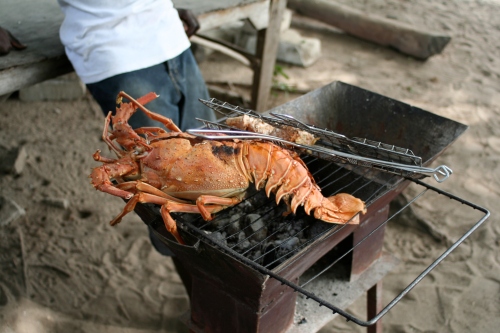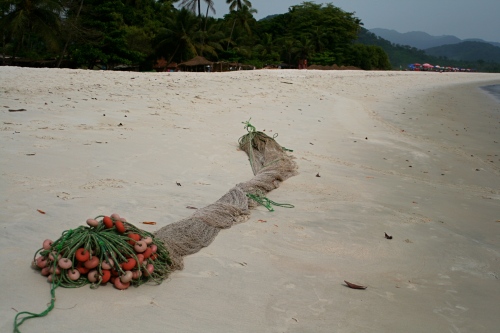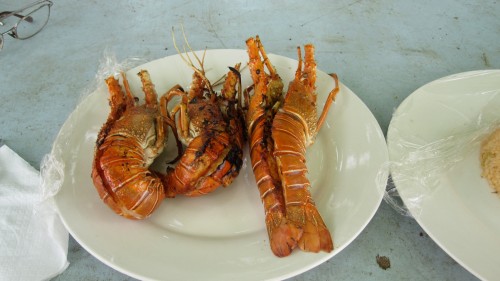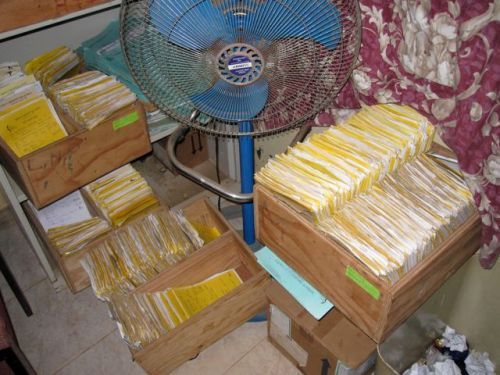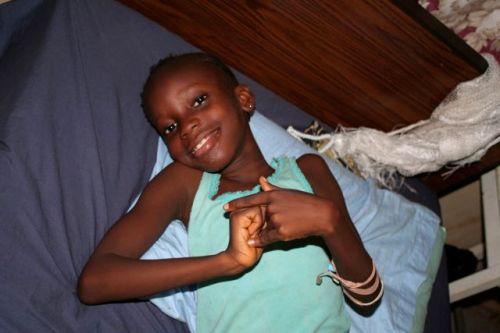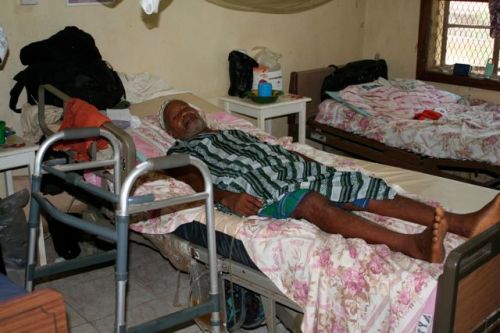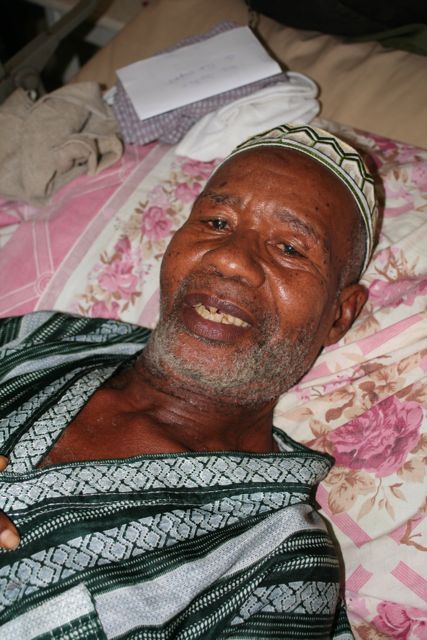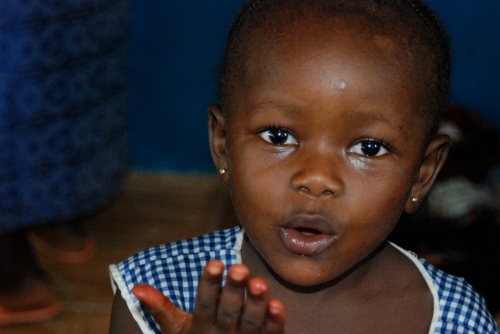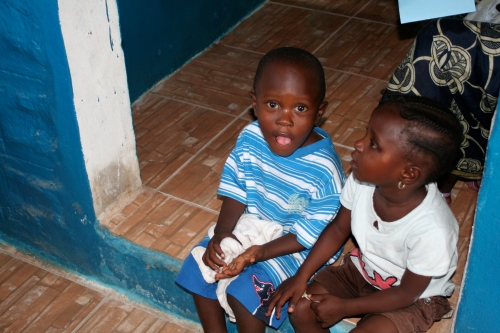I’ve been thinking a lot lately about the word privilege. I know I’ve led a privileged (some might say enchanted) life – for starters, I was born in America! I was not only born in the good ‘ole U.S. of A., a fact which I am constantly reminded of, especially how many liberties and luxuries we’re afforded, but I was also born into a caring, supportive, well-off family, and as a result I have never truly had to worry about any of life’s necessities, food, clothes, housing, education. I consider myself luckier than most to have been able to travel to and work in the places I have, and have been granted access into many intimate, personal settings of people in all corners of the world. As much as I complain about the things that don’t work in the US, we’ve got it good.
Lets see. Last week, I brought out the Young Adult version of Three Cups of Tea (an all time favorite that is a MUST read if you have not). I am planning on starting to read it with some of the girls at the Child Rescue Center this week, but since I was going to Freetown, a staff member there asked if he could read it while I was gone. “Of course!” I said, as I’m always one to advance the international movement for female education in the form of wonderful, heartfelt literature.
When I got back on Wednesday, I asked him how he liked it. He said, “It is such an interesting book. That guy does wonderful things! And…[this is where my mouth drops open in a shocking stupor]…you know, it was so recent! There is information in there from 2007! Did you know that?”
Recent? I mean, sure, the book came out just a year or two ago, but the story itself chronicles events that happened largely in the 1990’s/2000’s and, last I checked, it’s 2010.
And then I had my daily reality check, stepped back, and realized that barring storybooks about Obama that recent teams had brought for the Child Rescue Center residents, for the majority of literate Sierra Leoneans most books available to read are either (a) decades old or (b) about things that happened decades, if not centuries, ago.
For goodness’ sake, I get frustrated reading academic articles that don’t include at least SOME data from the previous year. Sure, figures from 1996 are great and all, but only if accompanied by figures from 2008-2009 (I concede – slightly academic elitist, but so goes my thought process).
To continue…the morning after I returned back to Bo (and had this refreshing conversation with Uncle Philip), I was doing rounds at the hospital. There were two kids in the pediatric ward with pneumonia, 2 men in the male ward with probable diagnoses of TB and a woman in the female ward with probable cancer. I’ve been shocked at the amount of pneumonia that is treated here. In my health naivete, and what one could term extreme shortsightness, the first time I stepped back and realized how many kids with pneumonia I’d encountered I asked, “Why do you seen so many pneumonia cases here? It’s not a cold climate.” Well, duh, pneumonia is spread through germs…and in a country where many people sleep/live in close quarters, hygiene is difficult to maintain at a population level and children are, in many cases, left to fend for themselves if they have colds or runny noses/chills, pneumonia can easily be spread. Inexperienced future-public-health-masters-student, 0. Common sense, 1.
Cancer diagnoses, on top of everything else stacked against the odds of good health in this country, are terribly hard for me to stomach. There’s little to nothing that doctors/health practitioners can do for patients, and I’ve heard (and read from body language/facial expressions) on more than one occasion that cancer diagnoses in Sierra Leone are basically death sentences, and practitioners are left figuring out how best to make a patient comfortable before they’re sent home. I realize this happens with cancer diagnoses everywhere – we have yet to reach the point where screening and prevention allows early intervention in all cases – but at least there’s a good rate of recovery/remission for many types of cancers in developed countries nowadays.
Privilege. I saw a lot of it at a conference I attended last week as well. It was a 2-day biomedical conference, of which one day was devoted to maternal and child health research. Very interesting, very necessary, especially for a country like Sierra Leone. The following points were made over and over again:
– Research NEEDS to be done in Sierra Leone. It is the only way the country can figure out how best to attack/cure the social and health-related ills that continue to ravage the population
– Sierra Leone is ripe for research. It is a microcosm of many public/medical health issues, as well as new terrain for many diseases/subjects
– Effective, internationally-accepted research can’t be done on a large scale at the moment because of multiple inhibitive factors that include, but aren’t limited to, absence of a national ethics committee (this is in the process of being created), government bureaucracy, a crippling national health infrastructure and, (this was said in every single presentation) lack of funds, from anywhere and everywhere. Where there were funds, they weren’t enough.
All the presenters over the 2 days did wonderful jobs, and it was educational, interesting and refreshing to take part in. However, as I traveled to a Ministry of Health Clinic on Saturday, the day after the conference had ended, it did strike me how lofty and far off some of the conversations and topics of the conference seemed in light of the perspective of the people on-the-ground, living the day-to-day realities, and in many cases nightmares, that I had spent 2 days listening to research about and pontificating with others on.
I am fully aware I ‘feel the burden’ of privilege more than many others – I would definitely term myself ultra-aware. Ask my mom about traveling in Europe with me after I spent 9 weeks in Northern Uganda… But then again, Sierra Leoneans I speak with also often talk about the disadvantages of privilege, mostly those who are educated past high school and are expected to then provide for extended family (even if their salaries aren’t always paid on time, or sometimes at all). There are those who left the country and have come back who are getting involved in governance and building infrastructure, and they must feel it to. It’s part of the world in which we live – the haves and have-nots. Unfortunately, as all research has shown in the past decade or two, that divide is growing larger each and every day, in almost every single country, developing or developed. That’s personally scares the bejeezus out of me.
Having said all that, I must confess I indulged in my ability to access privileges this weekend – namely, taking what is an inordinately large sum of money for most locals, but wouldn’t cause many in the US to turn heads, and spent it on a two-night stay at two of the infamous Freetown Peninsula beaches. Oh, my goodness. They are as gorgeous as everyone, and the guidebook, says. I am unfortunately jaded in this sphere of life as well as others, as Thailand/SEAsia has basically ruined anything short of spectacularly white sand leading to aqua clear blue waters with surrounding beauty that one usually expects to find only in movies that have been digitally altered. But I digress.
I spent a night on Hamilton Beach, and another night on River Number 2 (the expat favorite), and River Number 2 rivals the sheer beauty that I’ve seen in Thailand. Tourism/hospitality/travel ease aside (let’s just say there’d certainly be a market, if only someone can figure out how to move the airport to a more convenient location. Or build a bridge that bypasses all the Freetown traffic…), it was a familiar scene of very white sand, shallow water of almost clear aqua blue waters and, a favorite of mine, countless palm trees. There’s a river (River Number 2, hence the beach name) that flows from the surrounding hills straight into the sea, creating lots of smaller, deep pools inland that younger children were particularly interested in diving into.
The best part for me was that I was at River No. 2 Sun/Mon – Sunday it was JAMPACKED with day and weekend visitors, but Monday, I basically had the beach to myself. Beau-ti-ful. I was somewhat anxious to get back to Bo, because I have just a little work to do before I leave at the end of April, but believe you me, if I had an extra week and a few extra benjamins in my pocket…I know where I’d be.

A birds-eye view of the street stalls in Freetown, parked right next to the cars. This street had one of the more uniform parking systems in place, as far as I could tell.

this duo is a father/daughter pair; unfortunately they lost their wife/mother about a year ago, and the father seems to still be distraught and distracted by the loss. The family has SIX children, five of which still live at home with dad, in the house pictured here, in Hamilton (along the main road, not on the beach side). I can only imagine how that must be in the rainy season!

If I haven't mentioned this before, Sierra Leoneans are crazy about English Premier League football (soccer in american-speak). Take this boat on Lakka Beach, all gussied up with Manchester United slogans and crests.

River two comes down of the mountains (from the left side of this photograph) and creates a smaller 'lake' - pictured here - that then curls round to the ocean

At one end of River No. 2's beach, there's a small forest of rocks - very beautiful, and a playground haven for children (and/or me).

this young boy was playing with his friends among River No. 2's rocky edge, and interrupted his sand gymnastics to give me a DOUBLE thumbs-up. I felt kind of special.




